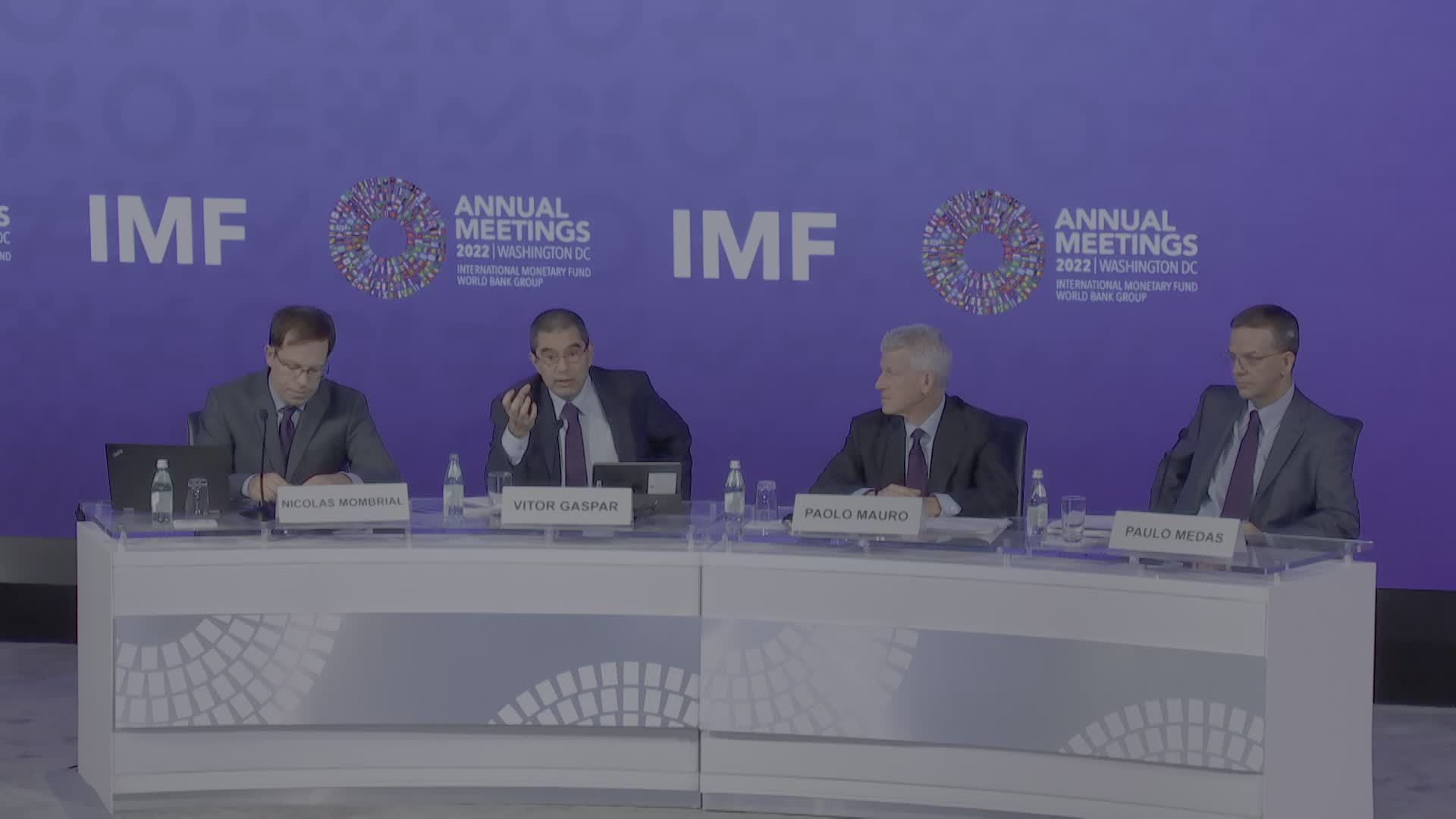As the global economy is suffering turbulent times, the IMF has warned Governments that they must reduce budget deficits incurred during the pandemic. The warning comes as energy and food prices soar, causing extreme poverty worldwide
After the unprecedented expansion in 2020, monetary and fiscal policies continue to move together, pivoting towards simultaneous tightening in 2022.
Vitor Gaspar, IMF Fiscal Affairs Department Director highlighted this need for consistency between monetary and fiscal policy.
“With deficits falling from 9.7% of GDP in 2020 to 4.7% of GDP in 2022. Inflation surprises help initially, but this effect cannot endure. Once inflation becomes broad based and persistent inflation, expectations catch up. High and volatile inflation makes credit more expensive and its costs less predictable. In the context of high inflation, high debt, rising interest rates and elevated uncertainty. Consistency between monetary and fiscal policy is paramount for economic and financial stability in most countries. This means setting the budget on its tightening course, prioritizing macroeconomic and financial stability,” said Gaspar.
Vitor Gaspar, IMF Fiscal Affairs Department Director warned that extreme poverty is increasing rapidly and must be addressed.
“After decades of reduction in extreme poverty, extreme poverty has increased in the world and it is projected to stay well above the pre-pandemic expected path going forward. That is a very concerning development. Together with that, we have that food insecurity has increased significantly, as has the number of people that suffer from undernourishment. So the issue of nutrition and food security are crucial and priority goals, as you rightly emphasized in this group of countries, budgetary sources, financing resources are scarce. But it's in the nature of the political and policy tradeoffs that policymakers face, that food security and nutrition have to be given priority,” said Gaspar.
An overview of the situation in Africa was outlined by Paolo Medas, IMF Fiscal Affairs Department Deputy.
“Africa is suffering a set of unprecedented shocks that are creating a massive setback on economic development, but also especially on creating a food crisis and a rising poverty. So we had seen a significant improvement in many areas pre-pandemic, but in recent years, many of these trends have reverted. So what we are seeing now is, for example, according to estimates by the World Bank, 11 million more people will be entering extreme poverty now than what would have been expected under pre-pandemic trends. The food crisis, as we already mentioned, has had a devastating effect in Africa. Some estimates indicate that more than 120 million people in Africa alone are suffering from food and insecurity, though they don't have enough to eat. So this is a very, very serious situation and governments are facing extremely difficult trade offs,” said Medas.
Vitor Gaspar, IMF Fiscal Affairs Department Director highlighted the need for a more effective tax system.
“The Fiscal Monitor emphasizes the need to be prepared, including by having a broad based and fair tax system that, in our view, could well include taxation of rents, taxation of excess profits, but also a flexible, comprehensive and scalable Social Security system that could be adapted to circumstances like those that countries are facing right now with the energy and food crisis. So I do think that the fiscal policy has a central role to play in politics and social cohesion and has also a central role to play in terms of the social contract,” said Gaspar.
To see the full report: https://www.imf.org/-/media/Files/Publications/fiscal-monitor/2022/October/English/text.ashx

